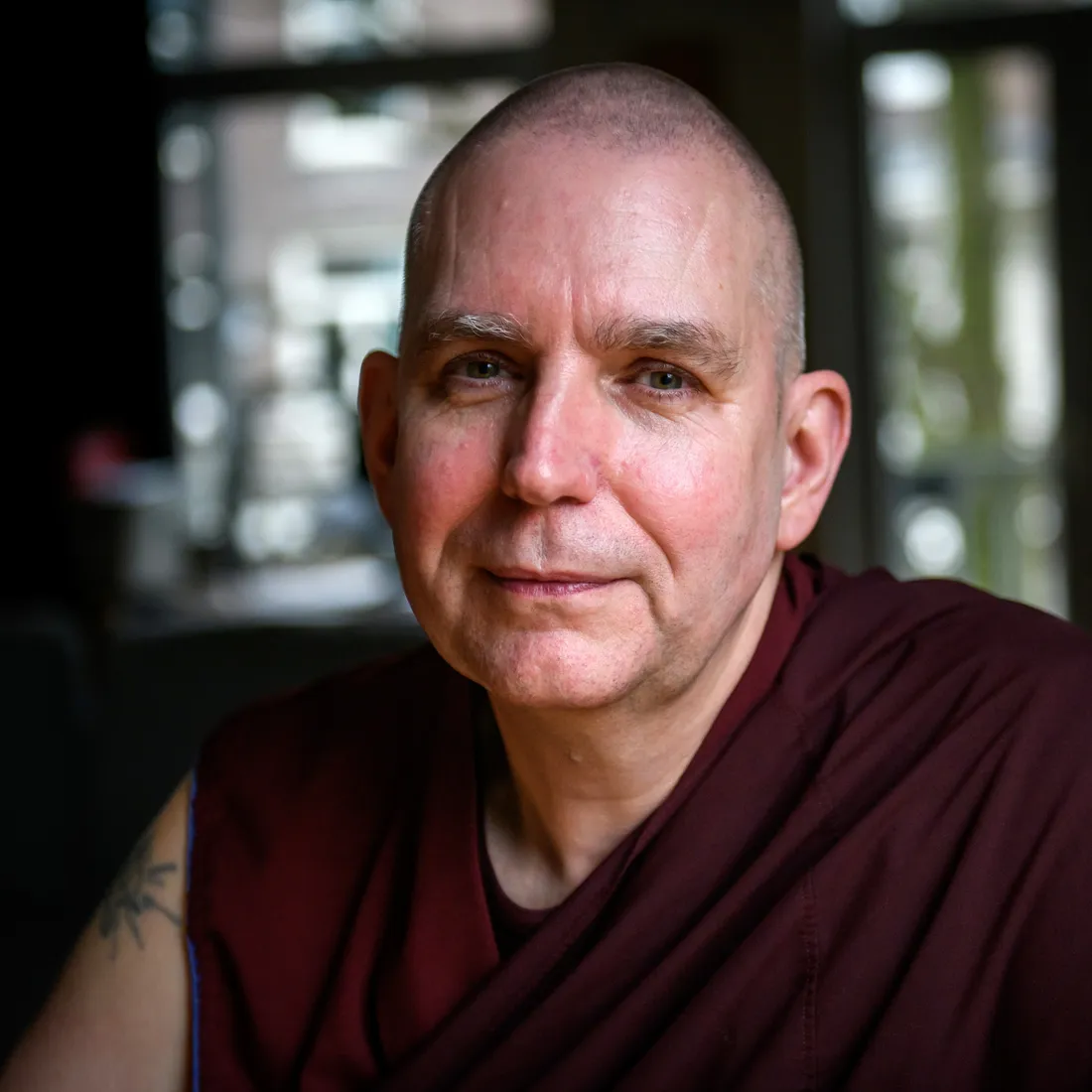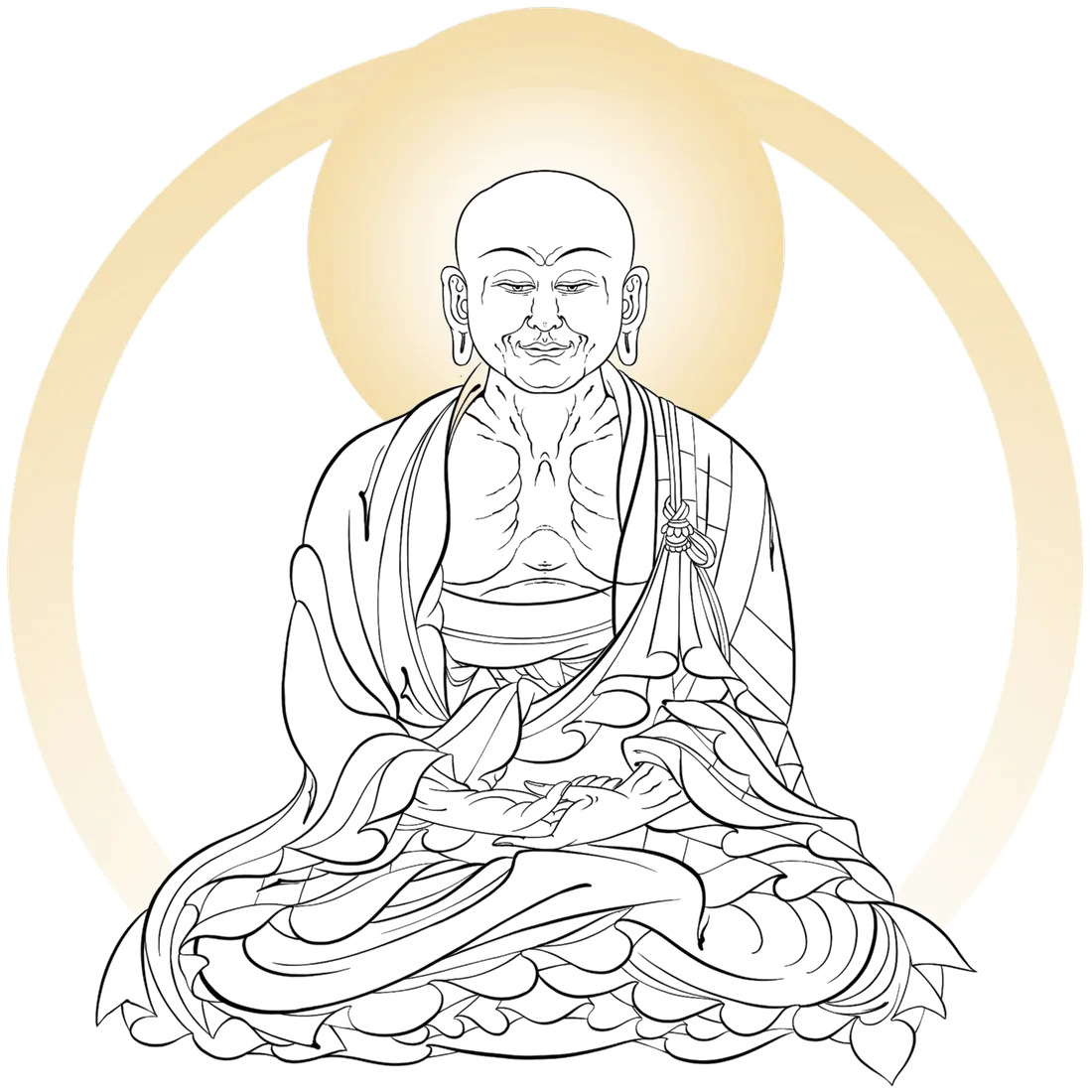In-Depth Meditation Training
The Radiant Ground: Emptiness and Buddha Nature
Thirteen Saturday classes
September 6 – November 29, 2025
6:30am – 9:00am Pacific Time
online
Program Category: Dharma Education — Intermediate
We are using the Zoom video conferencing system for this event. Please register below to receive your online access information.
By registering for this event, you understand that the sessions are recorded by The Buddha Project, and consent to this process.
In-Depth Meditation Training
The FPMT In-depth Meditation Training (IDMT)
was developed in dialogue with Lama Zopa Rinpoche, inspired
by his conviction that the true fulfillment of our precious
human life lies in generating the awakened mind,
bodhicitta—and that accomplishing this requires deep
meditative practice.
Based in the Lamrim and in the Gelug tenets, the training
progresses from foundational shamatha and insight to
mahamudra and kriya tantra. It contextualizes Buddhist ideas
in Western philosophy, psychology, and science. Each year
forms a self-contained module that can be joined
independently. Weekly guided meditations are combined with
in-depth lectures and meditation training, prioritizing the
needs and levels of practice of the participants. This is a
course that serves the students, adjusting itself in
accordance with their needs, developing with them.
Suitable for students who have a thorough understanding of
the Dharma, the course will be most rewarding for
practitioners wishing to make Buddhist values and goals an
integral part of their lives. With the benefit of a
supportive community, meditation practice and lifestyle
become mutually complementary; time on and off the cushion
will be transformed into a path to enlightenment.
The Radiant Ground: Emptiness and Buddha-Nature
This year’s journey will weave together the profound view of
Madhyamaka, as presented by Nāgārjuna and his successors,
with the compassionate vision of Tathāgatagarbha, the
Buddha-nature teachings that reveal our deepest potential
for awakening. Far from abstract philosophy, these teachings
offer a radical reorientation of how we perceive ourselves
and the world—pointing us beyond habitual grasping to a
space of clarity, openness, and profound compassion.
Having cultivated the foundational practices of shamatha and
vipashyana in the first year and explored Yogācāra’s
profound psychology of ignorance and awakening in the
second, we now turn to the very heart of Tibetan Buddhism:
the nature of emptiness and the luminous potential that
resides within every living being.
Guiding us in this exploration will be core texts from India
and Tibet. Nāgārjuna’s Mūlamadhyamakakārikā will serve as a
central pillar, systematically dismantling the illusions of
inherent existence. In dialogue with this, we’ll study
Kamalashīla’s Stages of Meditation, a practical and
accessible map for cultivating deep meditative insight
grounded in the view of emptiness.
Balancing the radical freedom of Madhyamaka, we will
encounter the warmth and encouragement of Maitreya’s
Ratnagotravibhāga, a poetic illumination of the
Buddha-nature within all beings. These teachings remind us
that beyond confusion and conditioning, there is a basic
goodness that has never been lost.
To ground these profound insights in daily life, we will
also study the beloved text of Geshe Chekawa Yeshe Dorje,
The Seven Points of Mind Training. With its pithy slogans
and deeply practical tone, it offers tools for transforming
adversity and cultivating bodhicitta on and off the cushion.
Throughout the year, our study and practice will be enriched
by meditative teachings from both the Pāli and Sanskrit
sūtra traditions, inviting a direct and experiential
understanding of emptiness—not as a concept, but as a
liberating shift in perception.
This year is an invitation to let the view of emptiness
infuse your practice—not as abstract philosophy, but as
living experience: clear, liberating, and rooted in
compassion. Our aim is not to gather concepts, but to
transform how we see and relate to the world. Through study,
reflection, and meditation, we learn to meet life with less
grasping, more openness—and a heart that naturally responds
with wisdom and care, held by the strength of community.
How to participate
- The course consists of weekly online sessions of a 60-minute guided meditation, a 90-minute lecture with ample opportunity for Q&A. Sign up for a whole semester or drop in on a class by registering below.
-
After registration, you will receive access to the Online
Learning Center on
The Buddha Project
website.
There you
will find access to the Zoom sessions, the supporting
materials, and recordings of past guided meditations and
lectures.
Online access details will be shared closer to the course start date. Once the course begins, please allow up to one week to receive your access information. - Depending on the interest of participants, these classes may be embedded in practice days, guided by experienced students, which will provide a supportive environment for joint practice and discussion.
Who might want to participate
- This course is beneficial for practitioners who want to further develop their meditative practice, by receiving in-depth meditation instructions and by getting a deeper understanding of the (philosophical and psychological) foundations of meditation. It will provide a complement for those who study Buddhism, to investigate and verify experientially the various subjects taught by the Buddha.
- To participate you will need a basic understanding of Mahayana Buddhism, although the course will introduce many of the foundational topics. A basic understanding can mean having completed the FPMT Discovering Buddhism course or the FPMT Basic Program or having obtained a similar level through other means.
Course Schedule
(13 classes)
(10 classes)
(11 classes)
Please take into account European daylight savings times:

Venerable Losang Gendun has dedicated
nearly four decades to practicing the Dharma, serving as a
fully ordained monk in the Tibetan tradition for the past
19 years. Prior to his ordination, he worked in diverse
fields such as palliative care, technology, refugee
organizations, and management. His extensive training
includes ten years of studying Buddhist philosophy and
practice in monasteries across France, India, Nepal, and
Myanmar.
He spent over four years in retreat, immersing himself in
Tibetan sutra and tantra, as well as the Burmese Theravada
Forest Tradition. For the last 15 years, Ven. Gendun has
taught worldwide, sharing his knowledge of Buddhist
philosophy, psychology, and meditation. He serves the
aspirations of H.H. the Dalai Lama and Lama Zopa
Rinpoche, as part of the
FPMT (Foundation for the Preservation of the Mahayana Tradition).
In addition to providing long-term guidance for Buddhist
meditators, Venerable Gendun’s main interest is
intercontemplative social engagement. He serves as an
interreligious canon at the Peace Cathedral in Tbilisi,
Georgia, and collaborates with a Mevlavi Sufi dargah in
Istanbul. Ven. Gendun is a member of
Mind & Life Europe,
a multidisciplinary laboratory that brings together
researchers and contemplative practitioners.
Registration
Registration is required to receive your online access information.
IDMT is offered in partnership with other FPMT centers and is
not included in Ocean of Compassion’s Sustaining or Sponsor
membership benefits.
